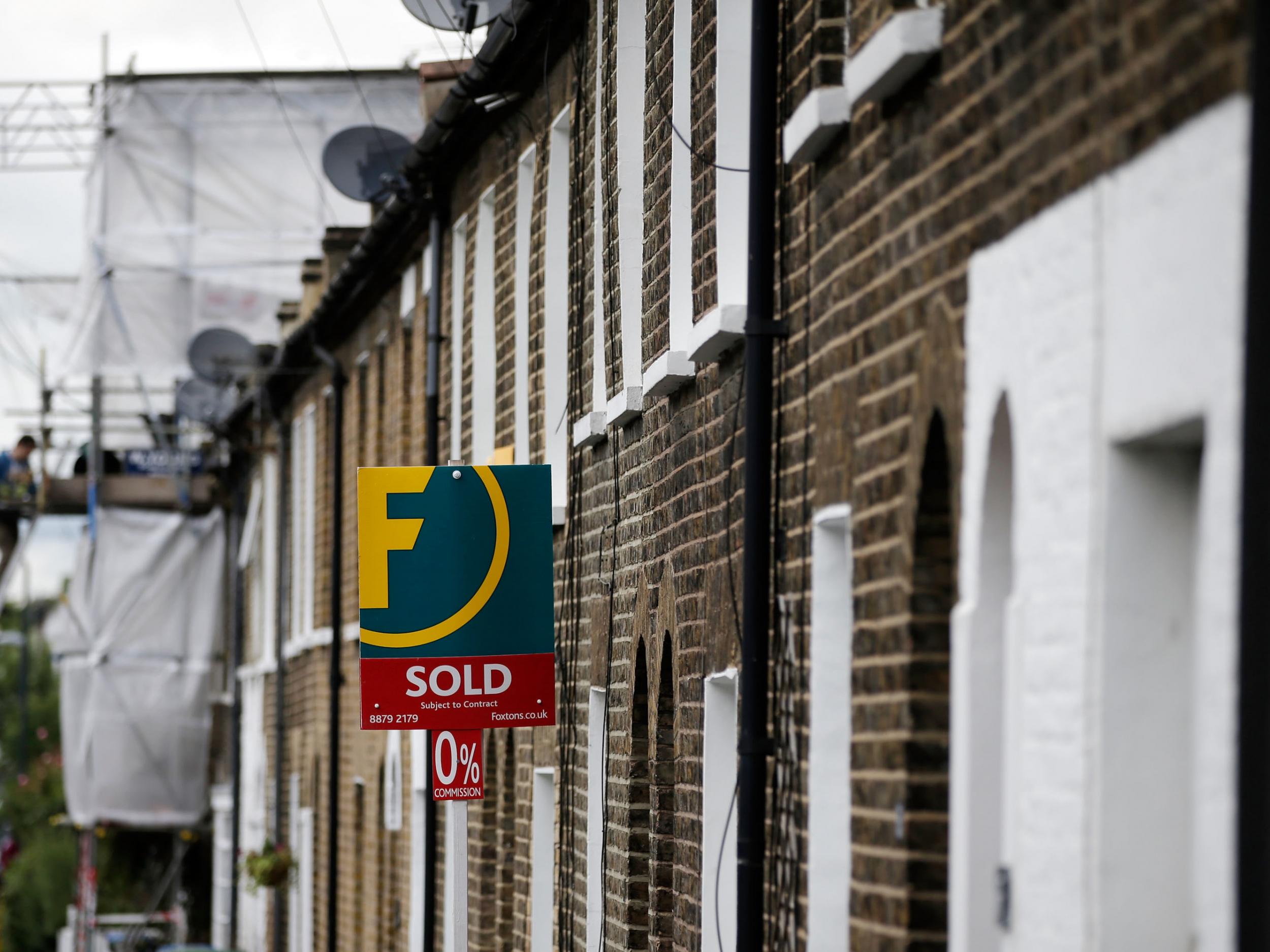Britain’s housing market is too expensive – and this, along with Help to Buy, could trigger another recession
By increasing demand rather than increasing supply, Help To Buy has been great for builders’ profits and has indirectly pushed up prices


A billion here, a billion there – and 10 billion more for Help to Buy. There is no doubt that this Tory policy, brought in by George Osborne, has been politically popular. There is not much doubt that it is economically damaging. True, it is only for new homes, but by increasing demand rather than increasing supply it has been great for builders’ profits and has indirectly pushed up prices. So while some people have indeed been helped, others have found that their first home has moved further out of reach.
But what about the impact on public finances? Is the Government making a great bet on house prices staying high, for now it is in the taxpayers’ interest that prices should never decline? Even more troubling, might the housing market become the next trigger for a recession?
Let’s get the good news out of the way, then go on to the dangers. The good news is that the Help to Buy numbers are not big enough to upend the country’s finances. Indeed they barely register, for an extra £10bn should be set against GDP of just under £2 trillion, net national debt of £1.8 trillion, and housing stock valued at £6.8 trillion.
Were there a housing crash, the notional loss of wealth for homeowners would be vastly greater than the impact on the public sector – notional, because of course people who owned homes might lose money if they had to sell, but meanwhile would still have the bricks and mortar.
Now the dangers. The huge question is how vulnerable we might be to a housing crash. If the population of the UK continues to grow, as is projected, then there will be solid demand for more homes. The supply, at least in the South, will continue to be constrained by pressures on land. So the underlying supply/demand balance will give support for housing generally, even if slower-growing regions will need less additional stock.
But housing is expensive. It is expensive relative both to incomes and the cost of building. So the question is: how high is too high?
The best recent study I have seen on this was done by HSBC a month ago. It was called Tackling Housing Booms: who’s at risk and what can be done, and to give away the punchline, the UK is not in as bad a shape as some other countries. It notes that Australia, Canada, New Zealand, Norway and Sweden have all seen real house prices up more than 60 per cent since the financial crisis, with the rise in the UK, US and China all a bit below 40 per cent.
If you look at affordability as defined by the price-to-income ratio, the same group also top that league. The UK and US are both still below their pre-crisis peak. And if you look at general household debt, again it is the same group, with the UK and US top of the second division of that debt league table.
To be clear: we do have a house price and debt problem in the UK. It is just that it is not quite as bad as in some other countries.
So what will happen? Well, the situation varies from country to country but much of the problem, HSBC concludes, must be ultra-low interest rates. There is also the lack of supply but that alone could not account for such a widespread issue. The authorities have had some effect with policies designed to make sure that lenders lend wisely, for example by limiting high loan-to-value mortgages. But ultimately the most effective policy will have to be higher interest rates.
How much higher, and what damage might this do? Since there is such a huge debt overhang, the increases in rates do not need to be has high as in previous cycles to have the effect of damping down prices, but obviously there is a danger that central banks may misjudge things. The paper notes that debt service ratios for households in the UK and US are below 10 per cent of income, whereas in Australia and Norway they are around 15 per cent. But provided the increases in rates are gradual, as HSBC expects, people should have time to adjust.
But there are risks. HSBC is particularly concerned about Canada: “The risk that the Canadian property bubble bursts is just that – a risk.” And it is worried about Sweden too.
By comparison the UK, and even more so the US, seem reasonably secure because the booms have been more muted and borrowers are likely to be more able to cope with a rise in rates.
If this, from a British perspective at least, sounds a bit Panglossian perhaps it is. We have had a fair experience of serious falls in property prices in recent years, and we have managed to scramble through each time. We are also at last starting to appreciate the damage to society of house price booms, as well as the political fallout if young people cannot afford to buy their first home. And we look like we’re taking the first step along the path to higher interest rates pretty soon, probably next month.
But it will be a narrow line that we have to tread. We need house prices to remain reasonably solid because if they crash that does real damage to the economy as a whole. But we also need them to stop rising and allow incomes to catch up. Tricky. And Help to Buy does not, I’m afraid, help.


Join our commenting forum
Join thought-provoking conversations, follow other Independent readers and see their replies